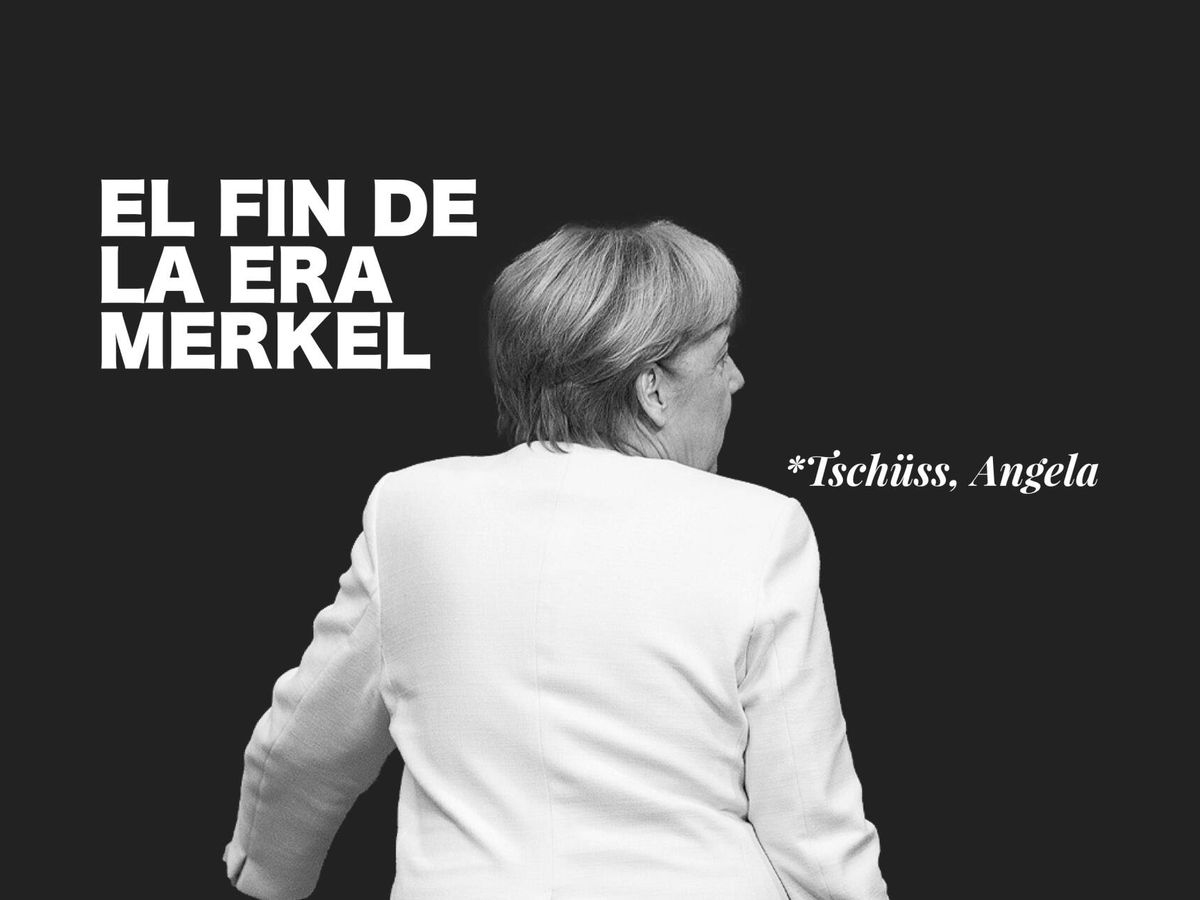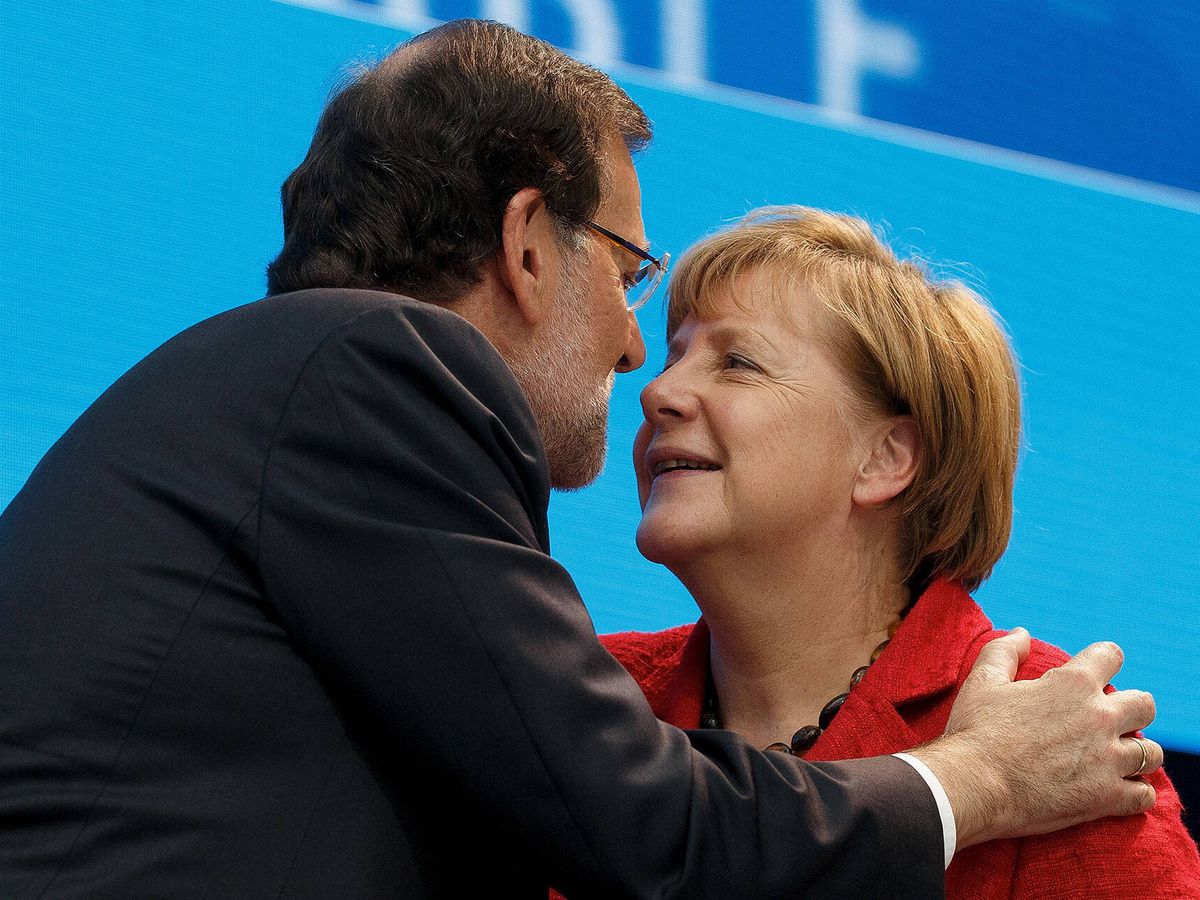“Germany very much wants to be Switzerland, but it can no longer because the world is more dangerous”

All the diplomats who attended the event fell silent when they heard Radoslav Sikorsky. “I may be the first Polish foreign minister in history to say this,” he said in a speech in Berlin in November 2011, in the midst of the eurozone crisis, “but I fear German power less than I do.” idleness. It has become the indispensable nation of Europe“.
But almost 10 years later, few Germans seem to remember the horrific words of the Polish minister. Because in the country’s most important election in the past 16 years, at a time of growing turmoil on the international scene, Germany has rarely said a word on foreign policy or its role in the European Union except for a late-night debate on Thursday.
The great contradiction in this election is that, on the one hand, the parties agree on this Germany must change quickly to adapt to turbulent times.. On the other hand, no one with options for the country’s leadership dares to make bold proposals so as not to frighten the voters. Not even in spite of the fact that European Union It will need reforms once a government is formed in Berlin. And what do I say? Germany will be the key to the future of the European Union.

Carlos Barragan. Munich Alicia Amylos Infographic: Rossio Marquez
Especially at a time, after the pandemic, the debts of countries such as Spain, Italy or France exceeds 100% of GDP The controversy over the financial agreement will arise again.
“From an economic point of view, what happens in Germany And it always ends up infecting the rest of Europe in both the good and the bad sense.” Christian Odendal, chief economist at the Center for European Reform. In an interview with El Confidencial, this expert on German politics and European monetary and fiscal policy explains the possible economic path Germany might take after the elections, what Angela Merkel’s legacy will be and why the Teutonic country can no longer afford to be the Switzerland of the world.
A question. What are the implications of Sunday’s elections on the future of the European economy? There are analysts who say that whoever wins, everything will remain more or less the same.
Answer. to say that who wins Everything will remain as it is very strong. However, I think there is some truth in the atmosphere in Germany that no matter who the chancellor is, Germany’s path will be the same. But this does not mean that we do not have to pay attention to what is going on there, because they will be the most complex coalition talks in the country’s modern history. for the first time, Two parties will not be fit to form a government.
P. The most likely alliance with the ballot boxes at hand is the so-called traffic light, because of the colors of the parties: the Free Democratic Party, the Social Democratic Party, the Greens. However, the Liberals have already drawn several red lines, but you say they are not too serious for my centre-left party.
A: It is not surprising that Liberals They say they won’t raise taxes or hit the debt brake. It’s not flashy. They are very outspoken on economic issues at the national and European levels… but we are on the campaign trail! When I say that it is not something very serious for the SPD or the Greens, it is because these rules do not have to determine the future of German fiscal policy. Both want a solid investment in the country and the FDP has recognized that it is necessary.

Q: How will it be funded?
R. There is a discussion of its acceptance Semaphore coalition. The Liberals want to find private funding to implement it, while the Social Democrats and the Greens want it to be public. There are ways to do this while maintaining the debt brake. A public car could be created to increase investment in green issues or to isolate homes to make them sustainable, one of the big issues in the German debate. If the development bank creates cheap loans to insulate homes, this is not a break in the debt restraint. There are ways that parties can tighten fiscal rules to increase spending. I don’t think liberal voters are very happy, but if there is one thing about this election, it will be to find some kind of compromise between the different parties.
P. Taxes, in addition to climate change, appear to be the major campaign issue among economists.
A- From a financial point of view, there is a common problem between Germany and the European Union: tax rules It was designed when the issue of public debt was our greatest and only concern. Now it is seen as a brake on the fight against climate change or, as we have seen in recent months, against the economic crisis caused by the pandemic.
Q: What are its effects on Europe?
A: If the next German government finds a way to reform its fiscal rules Investing in the climateThe rest of Europe will follow. Because, from an economic point of view, everything that happens in Germany ends up hitting Europe in good and bad ways. My big hope as an economist is that, whatever the government, a solution will be found to be able to invest in greener projects.

Raul Gil Benito Franco delle Don
Q: Another option for government, besides the Traffic Lights Coalition and the Jamaica Coalition (with the CDU instead of the Social Democrats), is the Left Coalition. You say, unlike some German commentators, Die Linke on the economic level is not as radical as it seems. The CDU, desperate because of the drop in the polls, jumped on the bandwagon to shout: “The Communists are coming!”
A: If you look at the economic program of the Die Linke Party, you will soon see that it is a stronger version of SPD and vegetables, but that’s nothing extreme: SPD wants a minimum wage of €12 and Die Linke, 13. They want to maintain control over house rents and the Social Democrats too. There will be ways to reach agreements. However, what separates D. Link from the Green Party and the SPD is foreign and defense policy. This was a red line in the past in the SPD. Scholz and Baerbock play their cards right saying they don’t want to be included, but they don’t rule it out. With Die Linke in the government, the government’s economic policy will not scare the markets because although tax increases may be a problem for Germany or some companies, the markets are more focused on spending.
Q: What did the SPD do well to be first in the opinion polls in economic terms?
R was found. The SPD has struck a good balanceAn experienced centrist candidate and political platform to try to fix Germany’s big problems that concern its citizens. And the issue of rent and housing prices are among them. He had never gotten out of control in the big cities. As mayor of Hamburg, Olaf Schulz Launched a big plan to build housing. It has credibility.

Lucas Proto Graphics: Marta Lee
Q: How would you describe Merkel’s legacy?
On the other hand, you have maintained consensus in Europe during various crises at a time when Germany had to take a very uncomfortable position. But the German response in recent years has not been very European. Angela Merkel He learned his lesson towards the end of his tenure and changed his policies. The recovery fund is the typical example of leadership from the front line rather than from the back, as happened in the eurozone crisis. His defense of austerity worked with him politically, but economically it was detrimental to Europe.
Little by little, they had to postulate some economic ideas which were previously unimaginable in Germany.
A: Europe’s crises have always been resolved when the red lines of the conservatives in Germany were crossed. The first was austerity in the early stages of the financial crisis. The second relates to the euro crisis, when the idea that it is nothing more than national crises in which the EU should not intervene was discarded. In other words, the financial system was entirely European. And the third is transform European Central Bank At a lender of last resort.
P. Why do you think Merkel has changed her mind these years?
A: Merkel’s ideas have been influenced by recent events, which showed that the world outside the European Union has become more difficult than before. The current situation in Germany is contradictory because, on the one hand, It must be the mediator It achieves a compromise in Europe between the thrifty and the countries of the South, but at the same time it has to lead Europe. This requires a highly qualified and experienced leader who is able to moderate in Europe at the same time to find balance and compromise while remaining daring on a global scale. And that kind of thinking didn’t exist 10 years ago.
Germany needs a very competent and experienced leader who can be moderate in Europe and bold on a global scale
Q: A few days ago, the former French ambassador to Washington said on Twitter that Germany had always wanted Switzerland to be a giant: neutral on the most difficult issues and able to talk and trade with everyone.
A: It’s a very common analogy. I think the saying that Germany has always wanted to be Switzerland on a large scale explains it well: Berlin seeks to stay out of the world’s problems, outsourcing its security to others such as United State He devotes himself to doing business. But that no longer works because the world is more dangerous. You can’t do that anymore, because he must guide Europe through unexplored waters. German sentiment must change. It’s a very difficult debate for the Germans, but he has no choice.
Q: A few years ago, you wrote that Germany must overcome its own small nation thinking in order to have a clear European strategy. Do you still think the same?
A: Yes, I still think the German public debate still has a long way to go. The election campaign for this election focused only on national issues and the skills of the candidates. They in no way spoke about Europe, let alone the global role of Germany. Most of the discussion in economic policy did not involve Europe either. The European Recovery Fund It is a good sign that Berlin appreciates the economic strength of Europe, but the next government must continue to work on it.

Twitter fan. Beer specialist. Entrepreneur. General pop culture nerd. Music trailblazer. Problem solver. Bacon evangelist. Foodaholic.



